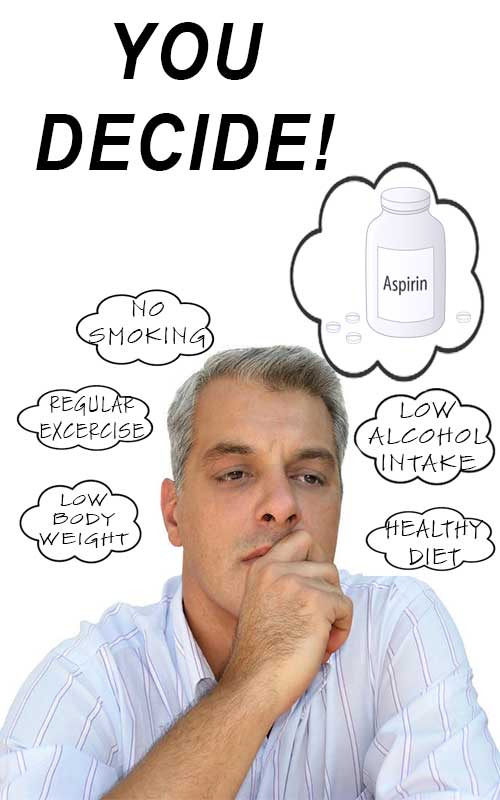In one of the largest overviews of trials of aspirin the authors pointed out that if a healthy person defers a decision about prevention of a vascular event by aspirin until he/she has some evidence of arterial disease, ‘…the first manifestations of disease might be a disabling of fatal event’.[4]
Aspirin is preventive and while the treatment of disease has been delegated to healthcare professionals, the preservation of health and the prevention of disease are the responsibility of each individual person. The most effective preventive of heart disease and other serious diseases, is a healthy lifestyle…. and this is ultimately the responsibility of each individual person. [See reference 13 and do read the website: Healthylivingwales.co.uk]
Probably no drug has been as thoroughly evaluated as aspirin in the prevention of heart disease! It has been estimated that over 140 randomised trials of aspirin, and numerous overviews of trials have been published! Yet, because of the present decline in the risk of heart disease throughout the community, the greatest value of aspirin may lie in its effect on the risk of cancer.
Aspirin was first made from a salicylate, a group of salts found widely in plants. Botanists tell us that salicylates have such a wide range of functions within plants, that much may yet be discovered about other benefits of aspirin to humans!
FINALLY -a warning, and a suggestion…..
If you do take aspirin regularly, do not suddenly stop taking it. Research has shown that if regular aspirin is suddenly stopped, the risk of a heart attack is increased about three-fold (see references 14 and 15).
and a suggestion… If a heart attack does occur, the sooner aspirin is taken the better. This is why Ambulance men and Paramedics usually give aspirin to a patient for whom an ambulance has been called because of sudden severe chest pain. It has therefore been suggested that older people should always carry an aspirin tablet (see references 16 and 17). A clever little container has been produced for carrying two tablets of aspirin.
Do google ‘ASPOD’ to see this.
